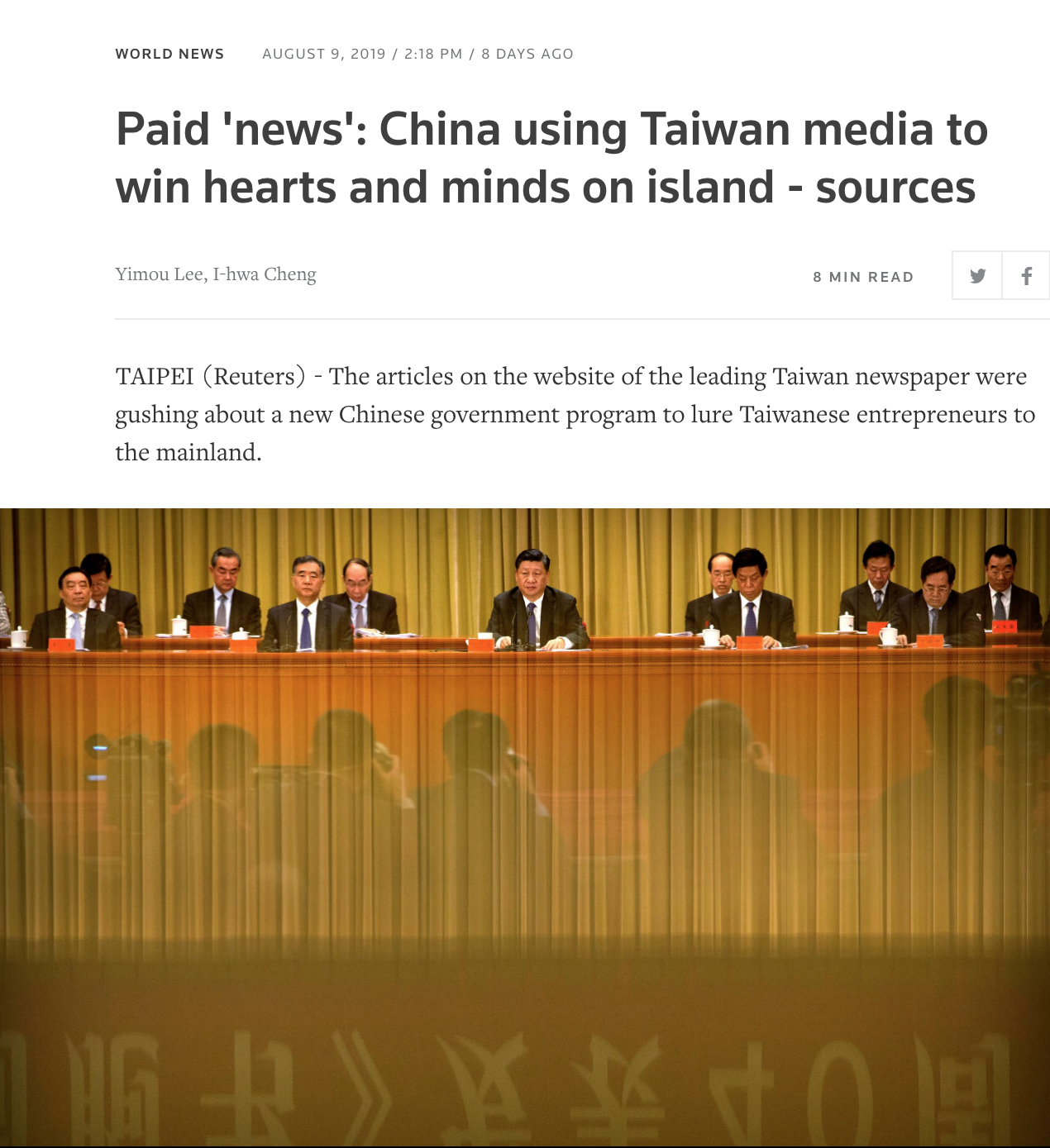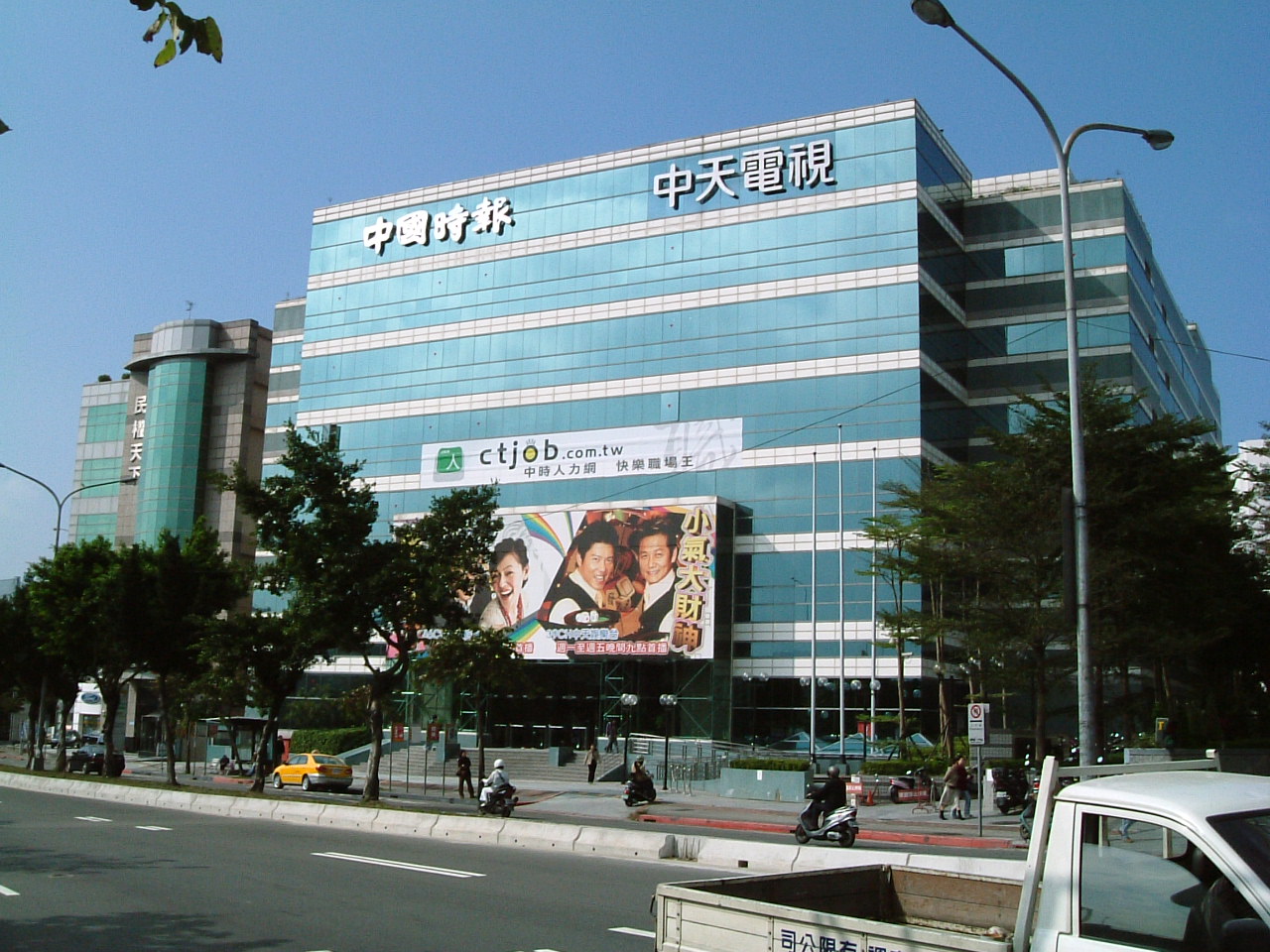by Brian Hioe
語言:
English
Photo Credit: PXHere/CC
REUTERS BROKE a story late last week that no less than five Taiwanese media groups were being paid by the Chinese government for positive press. The example primarily cited in the Reuters report was efforts by Taiwanese news outlets to promote economic incentives provided by the Chinese government to lure Taiwanese entrepreneurs to China. Reportedly, 30,000 yuan, or around 133,600 NT, was paid for two feature-length articles.
Indeed, concerns about Chinese influence over Taiwanese media outlets have been longstanding. A report published in the Financial Times in July stated that Want Want Group-owned television networks, and newspapers, such as the China Times and CtiTV, were taking direct orders from China’s Taiwan Affairs Office (TAO). According to the report, the TAO calls the China Times daily and has a say in both the angle that news stories take and whether certain stories are front-page stories. The TAO does not interfere in all stories but primarily does so with regards to stories related to cross-strait relations.
 The Reuters report in question
The Reuters report in question
The Reuters report did not name the five news outlets alleged to be paid by China for positive press. It is questioned whether it did not do so for fear of litigation. The Want Want Group is not only suing Kathrin Hille, the journalist that broke the story regarding Want Want media outlets seeking Chinese approval for stories before running them, but also media outlets that cite the report—with the state-run Central News Agency being its apparent main target.
However, it may not be hard to determine who the five media outlets paid for Chinese media coverage are, given the starkly pro-China coverage in many of Taiwan’s major pan-Blue outlets.
Indeed, the Apple Daily reported in May that the Want Want Group was also receiving money from the Chinese government, to the tune of 477 million Chinese yuan—just over 2 billion NTD—received from the Chinese government between 2017 and 2018. The Want Want Group subsequently sued the Apple Daily afterward.
It is also probable that China runs a number of smaller “new media” websites in order to spread disinformation and propagandize, with the Fire News website run by a group of New Party youth spokespersons accused of seeking to organize a Chinese spy ring in Taiwan in July 2018 being the most prominent example that has come to light, but there likely being others. It previously emerged last month that 23 Taiwanese media outlets were directly copying and pasting text originating from the Taiwan Affairs Office without even bothering to convert simplified text to traditional text, as also reported on by the Apple Daily.
But both these news outlets and Fire News were rather obscure ones. It is highly likely that the Taiwanese government is reluctant to go after larger media outlets accused of accepting money from the Chinese government out of fear of being accused of infringing on press freedoms in Taiwan and to avoid accusations of politically persecuting the pan-Blue camp.
 Photo credit: 竹筍弟弟/WikiCommons/CC
Photo credit: 竹筍弟弟/WikiCommons/CC
Indeed, it is highly likely that the Taiwanese government was aware of which outlets were accepting money from the Chinese government, but felt constrained in taking action on the matter. For example, in May, the Deputy Director of the National Security Bureau, Chen Wen-fan, stated that he had heard of Taiwanese media outlets seeking approval from China before publishing articles. Chen stated this after being questioned by DPP legislator Luo Chih-cheng during a meeting of the Foreign and National Defense Committee.
As such, it may not be coincidence that it took international media reporting on the issue for there to be any impetus on the part of the Taiwanese government to address the issue. International media reporting, after all, may be viewed as less having a stake in Taiwan, in not taking partisan stances on the matter. Some have suggested in the past that the deep political polarization of Taiwanese media outlets is another factor as to why, for example, whistleblowers did not come forward earlier regarding allegations of Taiwanese media outlets accepting Chinese money or seeking Chinese approval to run stories. At the same time, this has not prevented the Want Want Group from denying reports by the Apple Daily and Financial Times as “fake news” and seeking to silence them accordingly through lawsuits.
The dilemmas of Taiwan’s press environment will continue, then, with it proving ironic that free speech is used as a defense to justify the dissemination of political propaganda.

